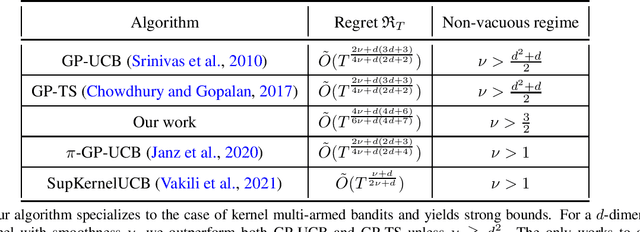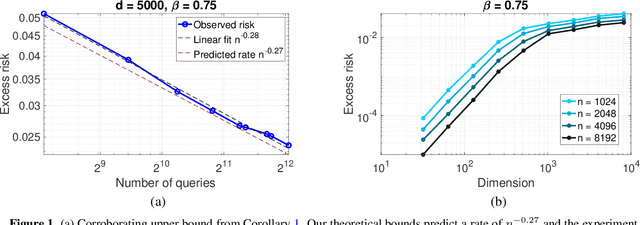Reward Learning as Doubly Nonparametric Bandits: Optimal Design and Scaling Laws
Paper and Code
Feb 23, 2023

Specifying reward functions for complex tasks like object manipulation or driving is challenging to do by hand. Reward learning seeks to address this by learning a reward model using human feedback on selected query policies. This shifts the burden of reward specification to the optimal design of the queries. We propose a theoretical framework for studying reward learning and the associated optimal experiment design problem. Our framework models rewards and policies as nonparametric functions belonging to subsets of Reproducing Kernel Hilbert Spaces (RKHSs). The learner receives (noisy) oracle access to a true reward and must output a policy that performs well under the true reward. For this setting, we first derive non-asymptotic excess risk bounds for a simple plug-in estimator based on ridge regression. We then solve the query design problem by optimizing these risk bounds with respect to the choice of query set and obtain a finite sample statistical rate, which depends primarily on the eigenvalue spectrum of a certain linear operator on the RKHSs. Despite the generality of these results, our bounds are stronger than previous bounds developed for more specialized problems. We specifically show that the well-studied problem of Gaussian process (GP) bandit optimization is a special case of our framework, and that our bounds either improve or are competitive with known regret guarantees for the Mat\'ern kernel.
 Add to Chrome
Add to Chrome Add to Firefox
Add to Firefox Add to Edge
Add to Edge